Pooley attacks cycling's sexism
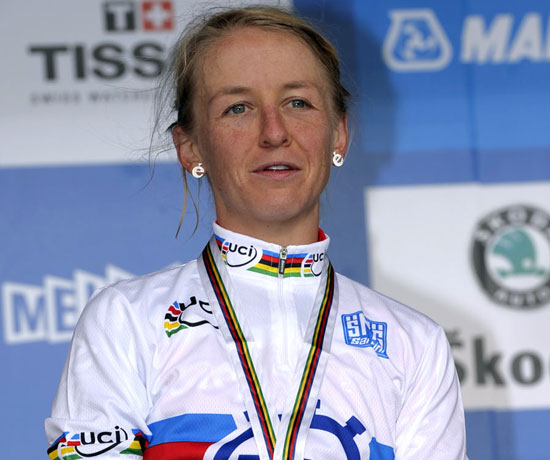
World time trial champion Emma Pooley has attacked the inequality between men's and women's cycling.
"It's just unfair, it really gets my goat," she told Cycling Weekly.
Where to begin? The disparity is huge: for starters, the women's professional sport suffers from a lack of prestige, under-funding, a truncated race calendar and imbalanced media coverage in comparison with men's pro riding.
Pooley pins the problem on to TV rights. "It's because our races don't go on television, but that's not our fault."
She continued: "I think the UCI has been extremely backward. There's been rumours that they might put all the World Cup races on television, but the UCI should be encouraging it by asking every major men's race to also put on a women's race."
Racing-wise, the World Cup series, abolished at the end of the 2004 season in men's cycling, still exists as the premier competition.
With the loss of the prestigious Tour de l'Aude stage race, which Pooley won last year, the chasm to the ‘mondialising' men's scene seems to be growing.
Get The Leadout Newsletter
The latest race content, interviews, features, reviews and expert buying guides, direct to your inbox!
Pooley enjoyed an outstanding 2010 season as Cervélo leader, winning 11 races, including the Flèche Wallonne, GP Plouay and the National Championship. Yet, despite her star status, world champ and Olympic silver medallist Pooley earns peanuts compared with male equals.
She indicated that she is on less than a 10th of the estimated £1 million-a-year contract enjoyed by Sky leader Bradley Wiggins.
Though calling the disparity "extremely galling", Pooley isn't motivated by big money.
"Money is only useful if you have got something to spend it on. I've got enough that I don't need to worry. And I'm paid to do what I really love, so I really can't complain."
Swiss-based Pooley, who combines professional racing with a PhD in geotechnical engineering, will race for Garmin-Cervélo next year, after the American brand came in to take over control of the women's team.
"There's a lot who race for nothing in women's cycling, a lot who get paid a damn sight less than me," she said. "I'm on a decent wage; every one of my team-mate's next year will have a minimum wage, which is good. A million euros would come in handy, but most people can't buy a house before they're 35 and working long hours, so why should I?"
The patronising attitude towards women's cycling by some casual observers also irks Pooley. "People say to me ‘of course you don't get paid as much because you don't race as far, and it's really slow'. These are people that have never watched a women's race because they couldn't be bothered to turn the TV on when there was one on. So, what do they know about it?" she said.
"Women's races are really exciting to watch, they're shorter, there's action all the way and there isn't the same control like there is in men's racing with teams of nine; you don't always know who's going to win."
Putting it on television would be a step in the right direction, according to Pooley. "There'd be more interest from sponsors, more teams [in existence] and more would get into it - not just racing, but cycling in general."
Pendleton bucks the trend
Are female cyclists really that hard done by? Look at Victoria Pendleton. She does "very nicely" according to her agent Chris Evans-Pollard.
"Vicky's potential is enormous and is possibly greater than Chris Hoy's if she achieves what he has," he said.
But there's the catch. While fellow sprinter Hoy gained his household name status through taking three Olympic golds in Beijing; as a woman, Pendleton had the opportunity to pursue just one.
The IOC and UCI have redressed this imbalance for the 2012 Olympics with a controversial restructuring of the Olympic track programme.
Assuming she continues to lead Britain's team across the sprint disciplines, come the London Games, Pendleton too should be able to go for three golds.
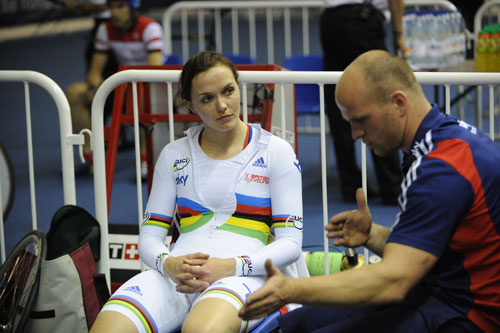
Having deals with Hovis, EDF, Adidas, Gatorade, Oakley, Land Rover, EA Sports and Sky, Pendleton's endorsements account for 90 per cent of her income - topped up by a fairly standard lottery-funded salary for actually riding her bike. Evans-Pollard points out they actually "turn down a lot of stuff for Victoria because she's only got a limited amount of time".
He also adds that Mark Cavendish, whom his company also represents, conversely makes about 90 per cent of his income from riding a bike and only 10 per cent from endorsements.
With road riders undertaking a higher volume of racing and training, time for fulfilling commercial obligations is limited.
So with track racing striving for parity at Olympic level, is the gender divide strictly a road thing? Evans-Pollard argues not. "Earning potential is as much to do with image as sporting success," he says. "Vicky's got a good image, she's very eloquent and very likeable, so she's maybe more attractive to brands."
But does that make it all OK? Pendleton recently told the Evening Standard: "I work in a very male-oriented environment and it's hard sometimes... I get frustrated that my voice isn't as well heard as others."
And while Hoy has gained exposure largely off the back of his racing achievements, Pendleton has had to play up her femininity to increase hers. Scantily clad photo-shoots may be her decision, but they shouldn't be a prerequisite for women racers striving for equal recognition.
Martin's modern take
Lucy Martin is part of the new wave of British women's talent doing well in Europe.
Only starting cycling in 2005, at the age of 15, after being spotted by the Talent Team, she has progressed through the ranks with British Cycling and will race for Garmin-Cervélo in 2011, where she joins compatriots Pooley, Lizzie Armitstead and Sharon Laws.
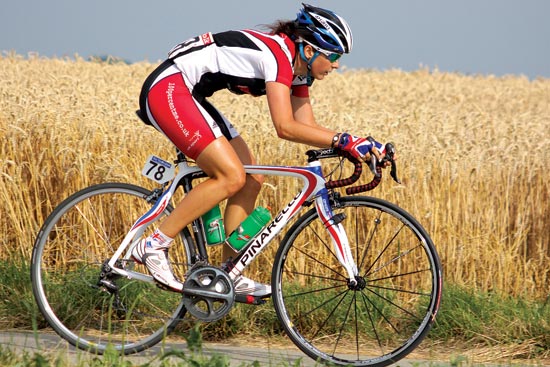
Though Martin appreciates there's "still a long way to go", she has seen an improvement over time. "I've noticed that it's getting better already. The whole lifestyle is different; a lot of cyclists have jobs, which is ridiculous; sponsors aren't going to take it so seriously if they can't fend for themselves."
As part of the BC Academy programme, Martin and her female colleagues enjoyed equal status to male peers in recent years. Based in Belgium, they earned approximately £7,000 a year plus any expenses.
Martin has just returned from a warm weather training camp with Armitstead, while her first race will be in Qatar.
This article originally appeared in the December 16 2010 issue of Cycling Weekly magazine
Related links
Emma Pooley: CW's top British rider of 2010
Pendleton fronts new Hovis campaign

Thank you for reading 20 articles this month* Join now for unlimited access
Enjoy your first month for just £1 / $1 / €1
*Read 5 free articles per month without a subscription

Join now for unlimited access
Try first month for just £1 / $1 / €1
Founded in 1891, Cycling Weekly and its team of expert journalists brings cyclists in-depth reviews, extensive coverage of both professional and domestic racing, as well as fitness advice and 'brew a cuppa and put your feet up' features. Cycling Weekly serves its audience across a range of platforms, from good old-fashioned print to online journalism, and video.
-
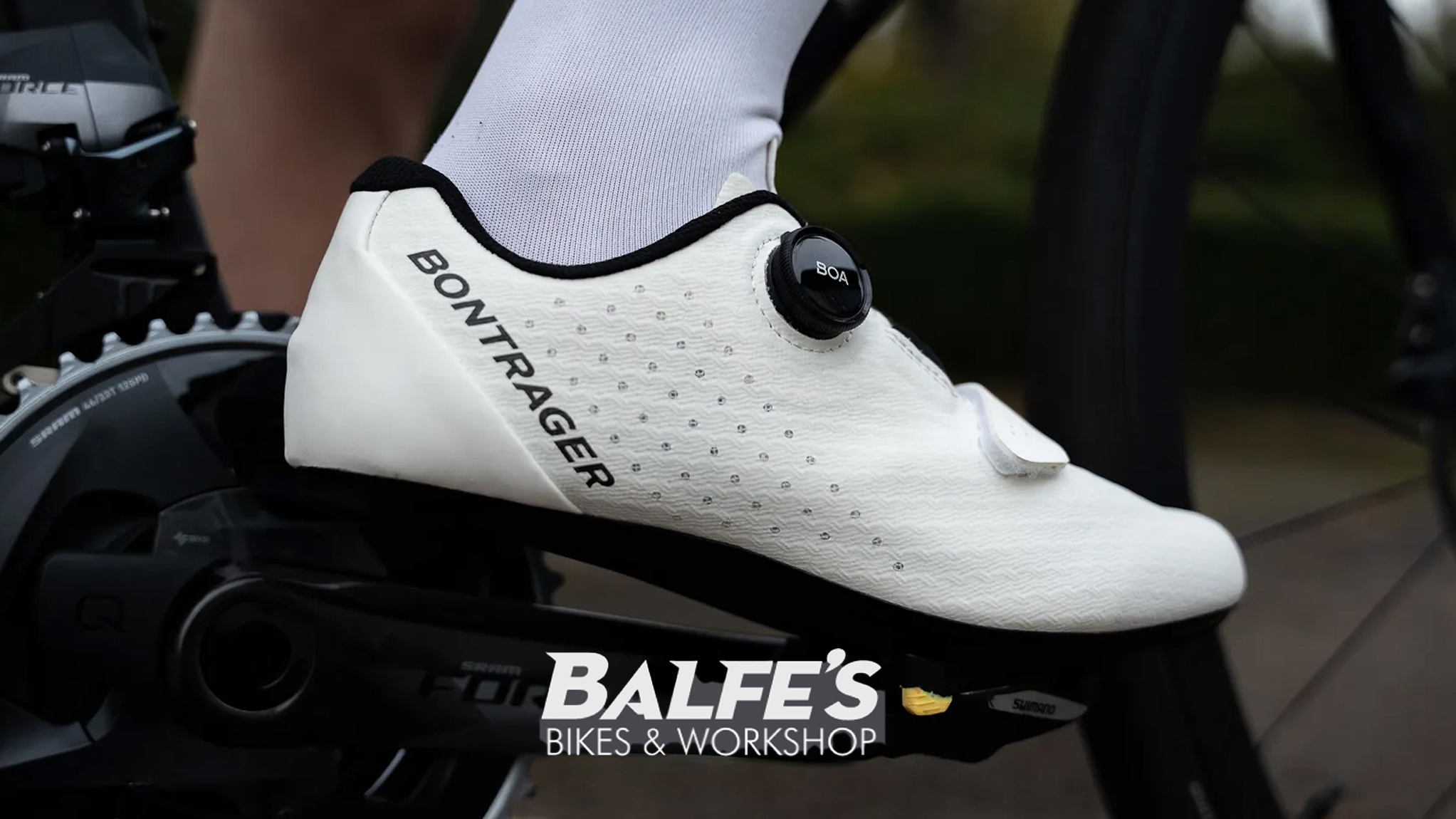 Gear up for your best summer of riding – Balfe's Bikes has up to 54% off Bontrager shoes, helmets, lights and much more
Gear up for your best summer of riding – Balfe's Bikes has up to 54% off Bontrager shoes, helmets, lights and much moreSupported It's not just Bontrager, Balfe's has a huge selection of discounted kit from the best cycling brands including Trek, Specialized, Giant and Castelli all with big reductions
By Paul Brett
-
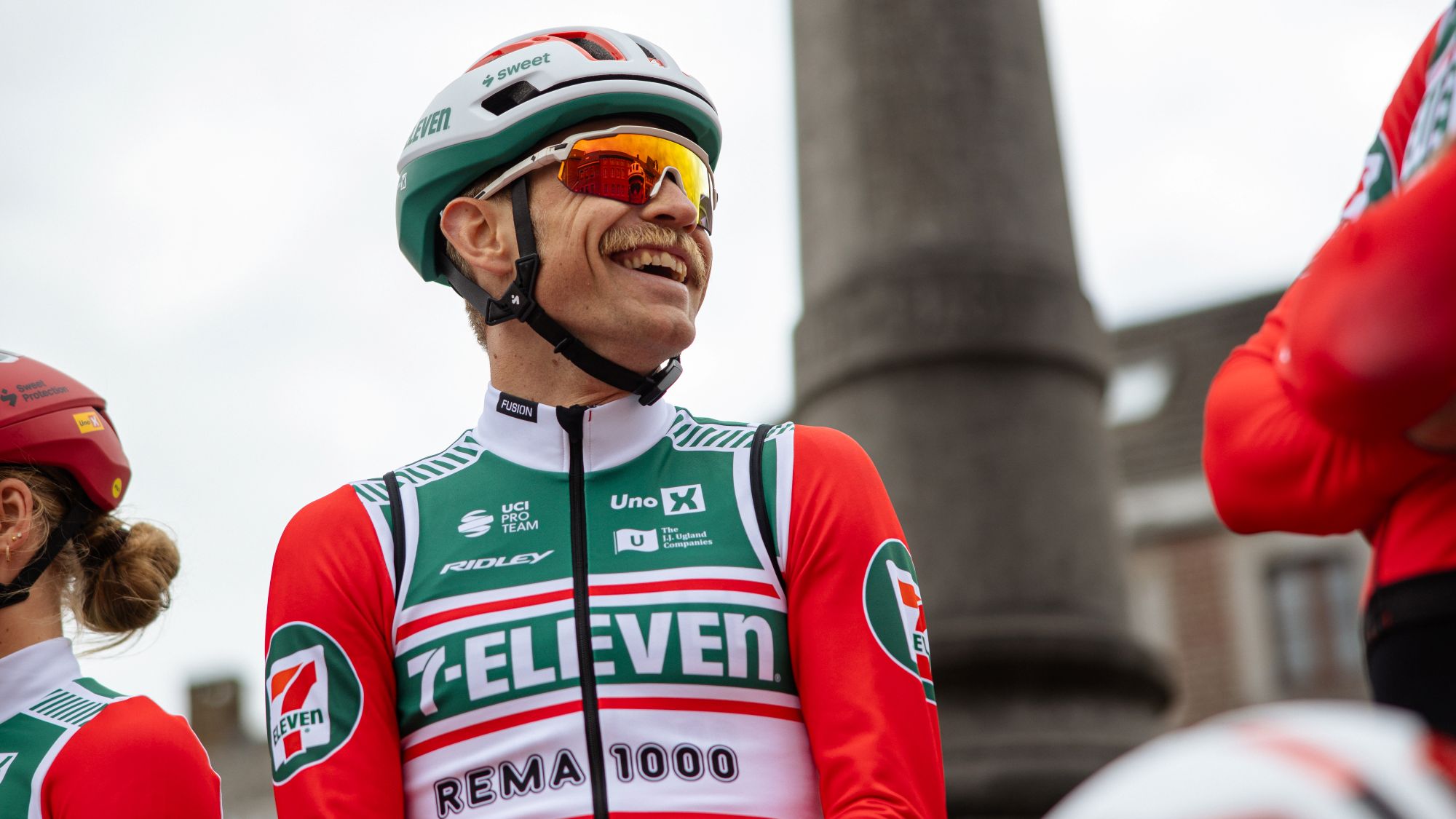 7-Eleven returns to the peloton for one day only at Liège-Bastogne-Liège
7-Eleven returns to the peloton for one day only at Liège-Bastogne-LiègeUno-X Mobility to rebrand as 7-Eleven for Sunday's Monument to pay tribute to iconic American team from the 1980s
By Tom Thewlis